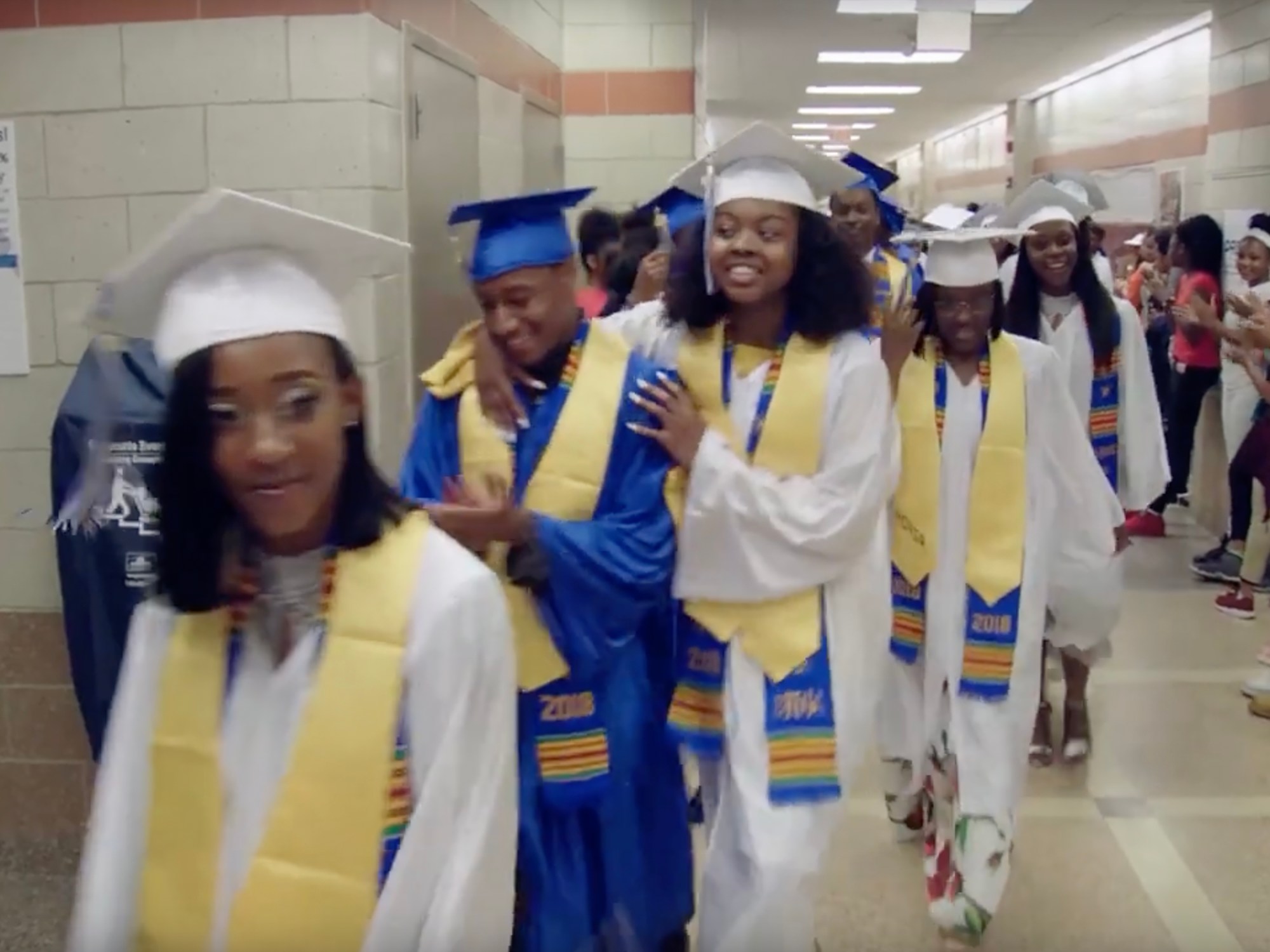
- Film
Docs: “Let the Little Light Shine” Tackles Primary Education, Discrimination
When a thriving, top-ranked, predominantly African American elementary school is threatened with replacement by a new high school favoring a community’s wealthier residents, a passionate group of parents, students and educators band together to fight for their institution’s survival in the documentary Let the Little Light Shine.
After benefitting from a world premiere earlier this year at the True/False Film Festival, one of the United States’ most prestigious showcases of nonfiction cinema, director Kevin Shaw’s movie is enjoying theatrical engagements this month and throughout autumn, in advance of a “POV” showcase presentation on PBS stations later this fall. Executive produced by Hoop Dreams director Steve James, the film does a good job spotlighting the inherent humanity of its subjects, and advancing the simple notion — self-obvious, but sadly novel to some — that people can still have many of the same hopes and dreams while looking different from you.
In 2013, in a wave of cost-cutting and alleged enforced accountability, 49 elementary schools in Chicago were closed. As the lapse of a five-year moratorium on additional closures looms, National Teachers Academy, home to 840 young students ages five to 13, receives notice that city officials are considering plans to shutter it as part of a plan to transform the property into a high school. The confounding element? National Teachers Academy is a model of scholastic achievement, and is deeply embedded in its community.
In telling this highly specific tale, Shaw celebrates the efforts of dedicated educators like principal Isaac Castelaz (as well as his mentor Amy Rome, the former principal of NTA from 2006 to 2012). Chicago native Chance the Rapper (born Chancellor Bennett) also lends his support, helping signal-boost the battle.
But Let the Little Light Shine is mostly a “for-us-by-us” story of grassroots activism. It is rooted in the attempts of NTA parents, like Elisabeth Greer, to at first protest through every official channel and then, finally, win a court injunction, for the first time in American history in a school closing case, based on a racial discrimination claim.
The result is a highly intersectional nonfiction work which attempts to unpack the complicated American public education system, exploring the ways in which it connects with and is often influenced by race, social class, and outsized parental opinions on these same topics.
“I made this film to understand why there was a movement in a booming Chicago neighborhood to close a high-performing elementary school that serviced a majority Black student population and transforms that institution into a high school, potentially causing more harm than good to neighborhood families,” said director Shaw in the film’s press notes.
“Race, obviously and unfortunately, figured into the equation,” he continued. “But there were other factors at play. Class, which is intertwined with race, [as well as] gentrification, power, privilege, and politics all had a hand in creating discord amongst a community that wanted the same thing — the best possible education for their children. The ways to achieve that goal was different for each set of residents, reminding us of harsh inequities and bias existing in our country. This story is not unique to Chicago; it is reflective of our American experience, one where Black and Brown communities still must fight for not only a seat at the table, but in this instance, an equitable place to learn.”
If Let the Little Light Shine to a certain degree skirts substantive engagement with some of those whose motivations it seeks to impugn (former Chicago Public Schools CEO Janice Jackson would seem to be more than capable of providing an articulate dissenting opinion, but there’s no indication one way or another that Shaw attempted to secure an interview), the movie still emerges as a stirring portrait of serious, focused civic engagement from a group that too often is ignored.
Adolescents may not have the full advantage of wisdom born of decades on this planet. But on myriad issues which directly impact their lives, health, freedoms, and intellectual betterment, why should they (and their parents) not have some input? They are, after all, our future.
Let the Little Light Shine embodies this sentiment, in a way that isn’t cloying or contrived. Seeing kids passionate about not only their own education but also where it takes place, is in its own way emotionally fortifying.

